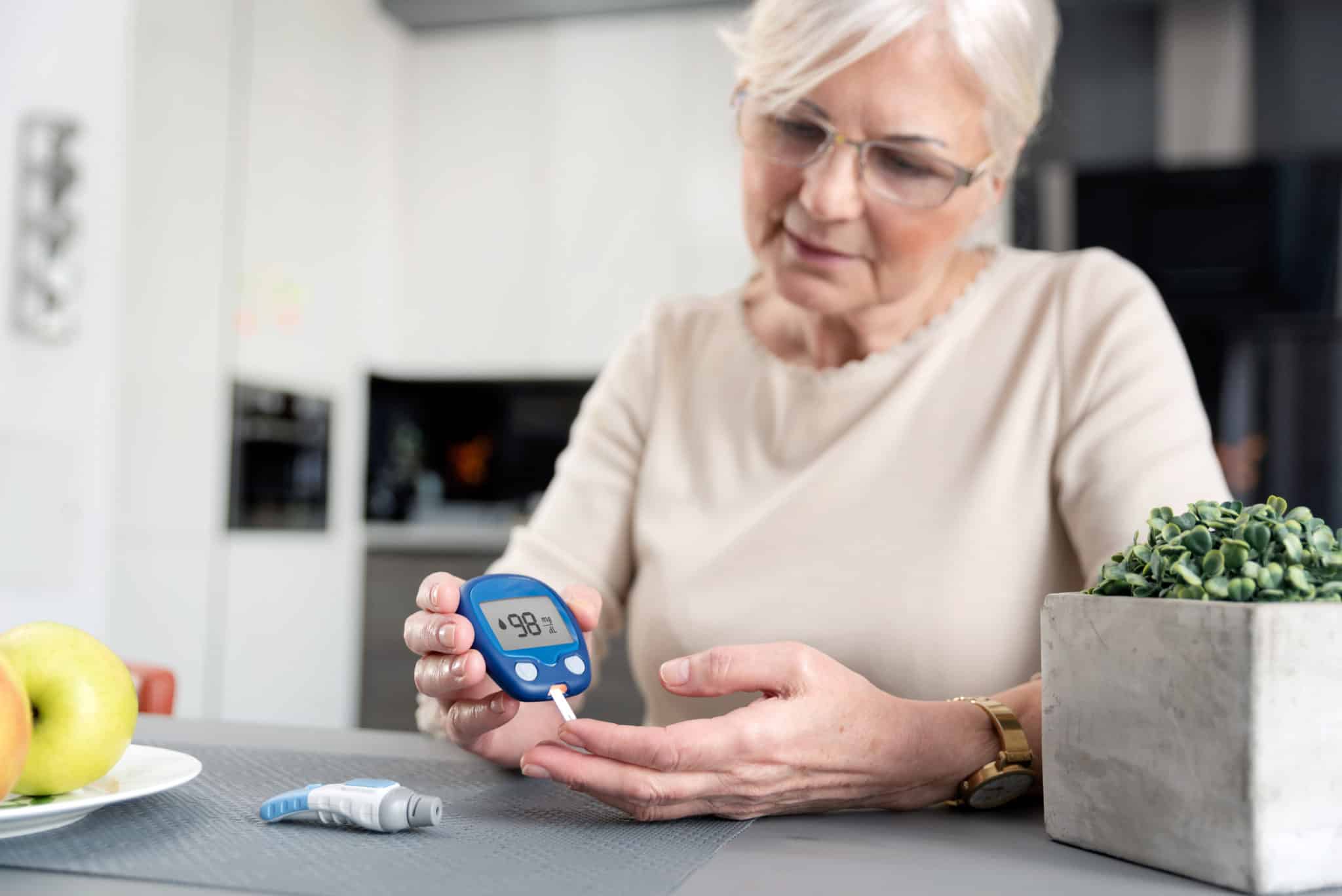How to Help Care for a Senior with Type 2 Diabetes

March is American Diabetes Alert Month and National Kidney Month. So, the team at our CCRC in Sussex County, New Jersey, is sharing tips and advice for caregivers whose loved ones have type 2 diabetes and require long-term care.
Type 2 Diabetes and Seniors
A diagnosis of type 2 diabetes is life-changing. Managing this condition means multiple lifestyle adjustments, from daily diet and exercise to medication and monitoring. For seniors, this health condition doesn’t just mean a greater workload for caregivers, but also comes with increased risks of heart attack, renal disease, ocular disease, stroke, and death.
For caregivers and older adults, managing this condition effectively takes additional dedication to those small, everyday choices made throughout care, as well as education, which empowers them to:
- Make better choices,
- Understand what it takes to live with type 2 diabetes; and
- Learn to communicate effectively to ensure taking rapid action in a crisis.
Checklist for Caregivers for Seniors with Type 2 Diabetes
First, it is important to evaluate your loved one on an individual level to see how well they are coping with managing their health condition. You can also identify and act on opportunities to provide additional support.
For example, a fairly independent senior may be great at monitoring blood sugar levels and keeping records, so your role would be more oversight and emergency assistance. However, a senior with dementia or poor disease management skills may need much more comprehensive support. Here’s a general checklist for caring for someone with type 2 diabetes:
- Record – Keep a record of blood glucose readings, medicine schedules as well as any notable symptoms (dizziness, fatigue, blurred vision, numbness, and the like).
- Exercise – Encourage gentle daily exercise for 30 minutes per day, as often as possible for general health, weight management, and stress management. (Walking, meditation, yoga, gentle stretching, gardening, water aerobics, and so on.)
- Grooming – Maintaining good oral health is essential. Teeth should be brushed twice a day with a soft-bristled brush, and regular dental checkups are needed to detect gum disease and other complications common to type 2 diabetes. Toenails should be kept neat and short to prevent ingrown toenails and infection; feet should be checked once a week for swelling.
- Bathing – Regular bathing is important. It also presents a good opportunity to check for swelling or sores. Dry off well after bathing and use a moisturizer recommended by your loved one’s doctor. Avoid moisturizing between the toes.
- Dressing – Pay special attention to the feet, looking for swelling or sores. Soft leather shoes with good grip are recommended, and shouldn’t be tied tightly.
- Eating – To keep blood glucose levels stable, develop an eating routine that you repeat each day, either three meals per day with healthy snacks in between or several small meals evenly placed throughout the day. Keep to the dietary plan recommended by your loved one’s doctor, and encourage lots of fluids including water, caffeine-free drinks, smoothies, and herbal tea.
Independent Senior Living at Our CCRC in Sussex County, New Jersey
Bristol Glen is a CCRC based in Sussex County that aims to provide seniors with comfortable, serviced living arrangements for independent living. Our CCRC provides a full continuum, so you don’t need to leave the community if your health needs change.
Contact us to find out more about our CCRC and assisted living in Sussex County, New Jersey, or please visit our website at https://umcommunities.org/bristolglen/ and book your visit today.





